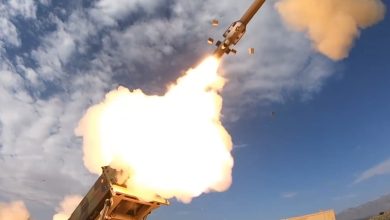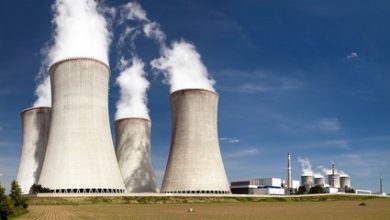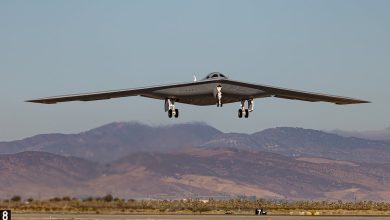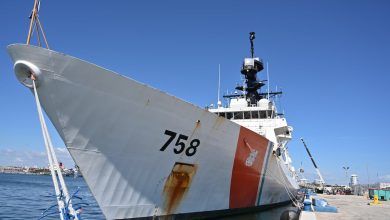Europeans map out Pacific aims as some in US want them to stay home
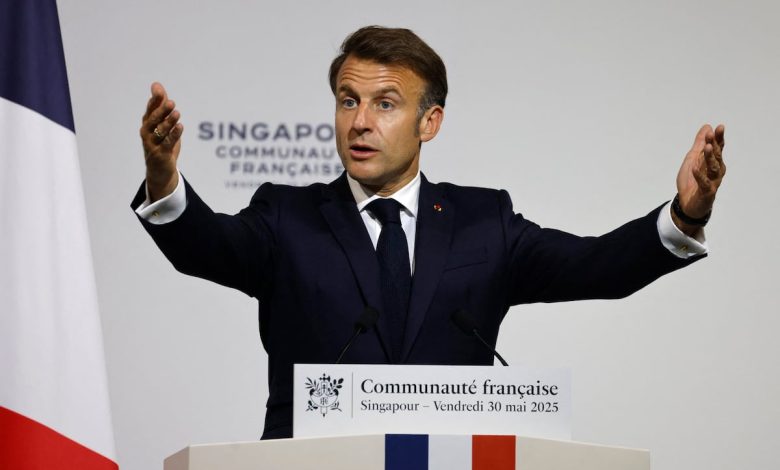
SINGAPORE — At the end of Pete Hegseth’s speech at the Shangri-La Dialogue, Asia’s largest defense summit, America’s defense secretary argued some members of the crowd should focus elsewhere.
“We would much prefer that the overwhelming balance of European investment be on that continent,” he said during a question and answer session.
Hegseth’s response addressed one of the core themes at a conference typically focused on Asian security alone. Since the war in Ukraine began in 2022, more Europeans have traveled to Singapore each year as a symbol of their commitment to the region, seen as increasingly important to their own.
Until this January, the United States welcomed that attention — but no longer. In the second Trump administration, parts of America’s government have grown more skeptical of a European military presence around Asia. Some policy officials in the Pentagon have actively discouraged it.
Instead, the conference last week featured a record number of Europeans in attendance and was headlined by French President Emmanuel Macron. While there, a wide share of officials from both regions defended Europe’s role in Asia, something even Hegseth acknowledged in his remarks.
The challenge, officials said, will be defining that role at a time when Europeans see the two regions as increasingly linked and when the United States wants its allies focused on their own backyards.
“This is a convergence zone right now,” said Gilberto Teodoro, the Philippines secretary of national defense, in an interview. “This is the first Shangri-La Dialogue where we see a lot of European advocacy and a lot of American advocacy.”
‘Clearly concerned’
Last year at the conference, Ukrainian President Volodymyr Zelenskyy made a surprise visit and met with America’s then-Defense Secretary Lloyd Austin. For many in attendance, the appearance emphasized a new sense that the two regions shared a common sense of security.
North Korea was sending troops to fight alongside Russia, China was supplying much of the Kremlin’s war machine and the West’s response to Russia’s invasion was thought to be a show of force against similar action around Taiwan.
“If we consider that Russia could be allowed to take a part of the territory of Ukraine without any restriction, without any concern, without any reaction of the global order, how would you phrase what would happen in Taiwan,” Macron said in his keynote speech last Friday.
Until January, this had also become the dominant view in Washington, pushing its allies in Europe to take the threat of China more seriously while also helping defend Ukraine. In the last year, countries from Britain to Italy have sent naval vessels to the Indo-Pacific, including the Taiwan Strait, as a show of their own military commitment to the region.
That demand signal collapsed with the election of Donald Trump, whose Pentagon has since called for Europe to take a far larger burden in defending the continent to allow America’s military to focus more on the Pacific.
That said, Hegseth himself left open a role for European militaries around Asia as part of a larger effort to deter China — something American military leaders have said is a key advantage.
“There is something to be said for the fact that China calculates the possibility and does not appreciate the presence of other countries on occasion,” Hegseth said. “If that is reflected in their calculus, then that’s useful.”
A U.S. defense official, speaking with traveling press on the condition of anonymity, said that the answer is obvious.
“They’re clearly concerned about European presence,” the official said of Beijing.
Different roles
Some allies at the conference agreed with Hegseth’s message that Europe should primarily focus on the defense of the continent.
Finland’s Defense Minister Antti Häkkänen, for example, listed the main concerns it country has with its own security: an 800-mile border with Russia and competition around the Arctic and Baltic Sea.
“That’s why our role in the Indo-Pacific Area cannot be so big,” he said in an interview.
Still, Häkkänen came to Singapore to meet with partners such as Singapore and South Korea about Finland’s defense industry and intelligence sharing. Both are natural areas to cooperate, he argued, even if his country wouldn’t commit major military forces to the region.
Sweden’s defense Minister Pål Jonson attended the conference with a similar message on partnering with intelligence and weapons sales, he said. But he also came to stress why countries in the region should care about what happens in Ukraine.
“We are here also to make the case: Why it is important to stand up for Ukraine’s territorial integrity and freedom,” Jonson said.
Some Indo-Pacific countries, such as South Korea, Australia and New Zealand, have been supporting Ukraine with military aid and training for the last three years, seeing Russia’s invasion as a test of resolve for free countries.
Judith Collins, New Zealand’s defense minister, said her country is continuing its mission to train Ukrainian troops on the continent and could also assist in a peacekeeping mission if a peace deal is reached.
That said, New Zealand recently announced a major defense spending increase and is now aiming to spend 2% of GDP on the military by the early 2030s. Part of that plan is motivated by Wellington’s sense that it needs to take greater control over its own security, regardless of partnerships with other countries.
“The comment that’s been made to me by one of the NATO ministers is: ‘We have a NATO-first policy.’ My answer to that was: ‘So where does that leave us?’” Collins said in an interview.
“The answer is: doing more for ourselves with our friends in our region — as well as being good contributors to peace in Europe,” she said.
Noah Robertson is the Pentagon reporter at Defense News. He previously covered national security for the Christian Science Monitor. He holds a bachelor’s degree in English and government from the College of William & Mary in his hometown of Williamsburg, Virginia.



